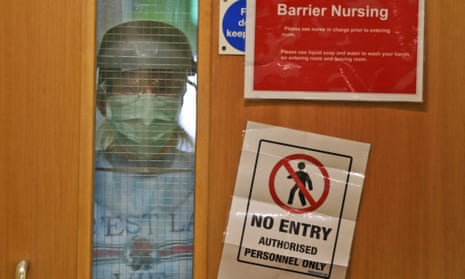People would be given a legal right to visit their relatives in care homes and stop providers threatening those who complain with eviction under new legislation proposed last week.
The private members bill, introduced in the House of Lords by Lord Hunt of Kings Heath in an effort to spur ministers into action, is designed to stop a small minority of care homes from preventing or limiting visits due to Covid, more than two and half years after the first lockdown began.
Campaigners say other care providers are using outdated guidance to limit visits, which can play an important role in maintaining the well-being of dementia sufferers and other diseases of old age. Some say their relatives have been threatened with eviction after they have complained.
However, care providers have urged caution about creating a new law, saying they are concerned that the vast majority of care homes that allow and encourage visits may be unfairly penalised.
The private members bill is unlikely to become law without government support, Lord Hunt admitted, but he said care minister Helen Whately had “expressed an interest” in the bill at a meeting last month. She had previously asked officials in the Department for Health and Social Care to examine how the issue might be tackled and told MPs she was “on the case”.
“Government ministers seem to have an appetite for doing something on the problem of visiting in some care homes where, unbelievably, people are still finding it sometimes difficult to actually get to visit relatives,” Lord Hunt told the Observer.
The peer lost his mother and father-in-law in the pandemic, and both had lived in care homes.
By mid-November, 102 care homes in England reported to the government that they were not allowing any visits and 98 were only allowing visits in exceptional circumstances, with 12,712 homes across the country allowing visits.
During Covid outbreaks, official government guidance suggests homes can make “proportionate changes” to visiting but “one visitor at a time per resident should always be able to visit inside the care home”.
Campaigners believe the official figures underestimate the scale of the problem. The Relatives and Residents Association and Rights for Residents say that some care providers have banned grandchildren and put age limits on visitors. They also object to other restrictions, such as allowing visits only for short periods, and not letting people see their parents, husbands or wives in their rooms.
Helen Wildbore, director of the R&RA, said: “It is six weeks since the care minister promised she was “on the case” and working on options to ensure people needing care are not isolated from the vital support of their family carers.
“Lord Hunt’s bill will be a ray of hope to families desperate to see change. There is clear cross-party, cross-Parliament support for a new legal right to a Care Supporter.
“There is political will from the Care Minister to bring about change but now we need action. Before it is too late for too many more people. With many older people facing their last Christmas, this is desperately urgent.”
But Nadra Ahmed, the chair of the National Care Association, said: “If legislation is passed, the 98% of providers who comply could see themselves in breach of something which is maybe out of their control.
“We’ve got to think about the unintended consequences of this, so I would urge caution. And I want to be absolutely clear that we see visiting as an integral part of support for people that we care for.”
